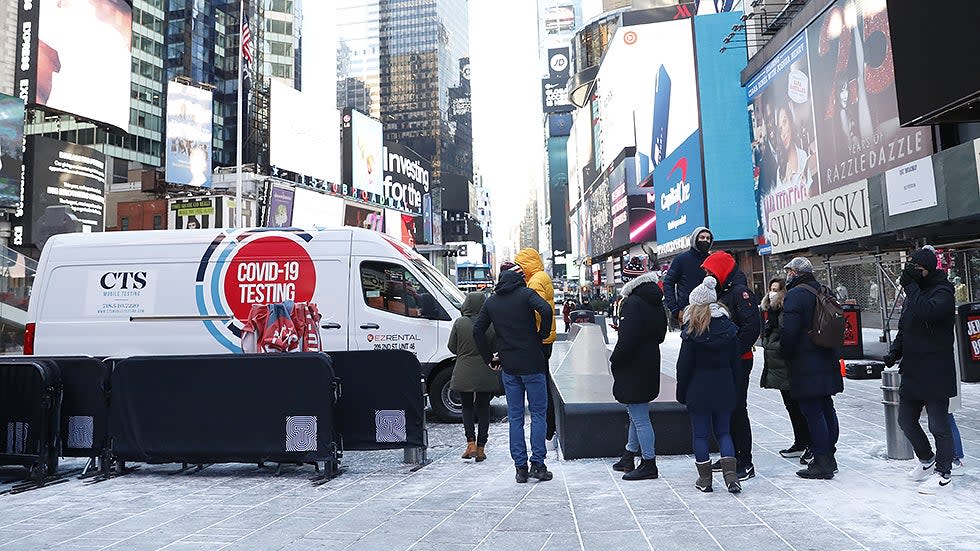WHO sees slowdown in omicron surge

The World Health Organization (WHO) said on Tuesday that COVID-19 cases grew by 20 percent last week, marking a slowdown in global numbers.
The United Nations agency said that across the six WHO regions, more than 18 million new cases were reported this week. The previous week saw a 50 percent increase in the confirmed COVID-19 cases, according to the WHO.
However, it cautioned in its weekly report that "despite a slowdown of the increase in case incidence at the global level, all regions reported an increase in the incidence of weekly cases with the exception of the African Region, which reported a 27 percent decrease."
WHO Director-General Tedros Adhanom Ghebreyesus said Tuesday that that the highly infectious omicron variant "continues to sweep the world," The Associated Press reported.
While he acknowledged that some regions appear to have passed the peak of the latest omicron wave, Tedros warned that "not all countries are out of the woods yet," according to the newswire.
The report added that Southeast Asia saw the largest rise in coronavirus cases last week, with new confirmed cases rising by about 145 percent. The Middle East saw a 68 percent rise in weekly cases.
The WHO noted that the Americas and Europe had the smallest increases, at 17 percent and 10 percent, respectively.
This news comes as the U.S. has also seen its COVID-19 case numbers start to plateau. Daily case reports in Cleveland, Newark and Washington, D.C., have also rapidly declined after each of the cities saw record-breaking spikes over the past month, per The New York Times.
U.S. Surgeon General Vivek Murthy told CNN on Sunday that "There are parts of the country - New York, in particular, and other parts of the Northeast - where we are starting to see a plateau, and in some cases, an early decline in cases."

